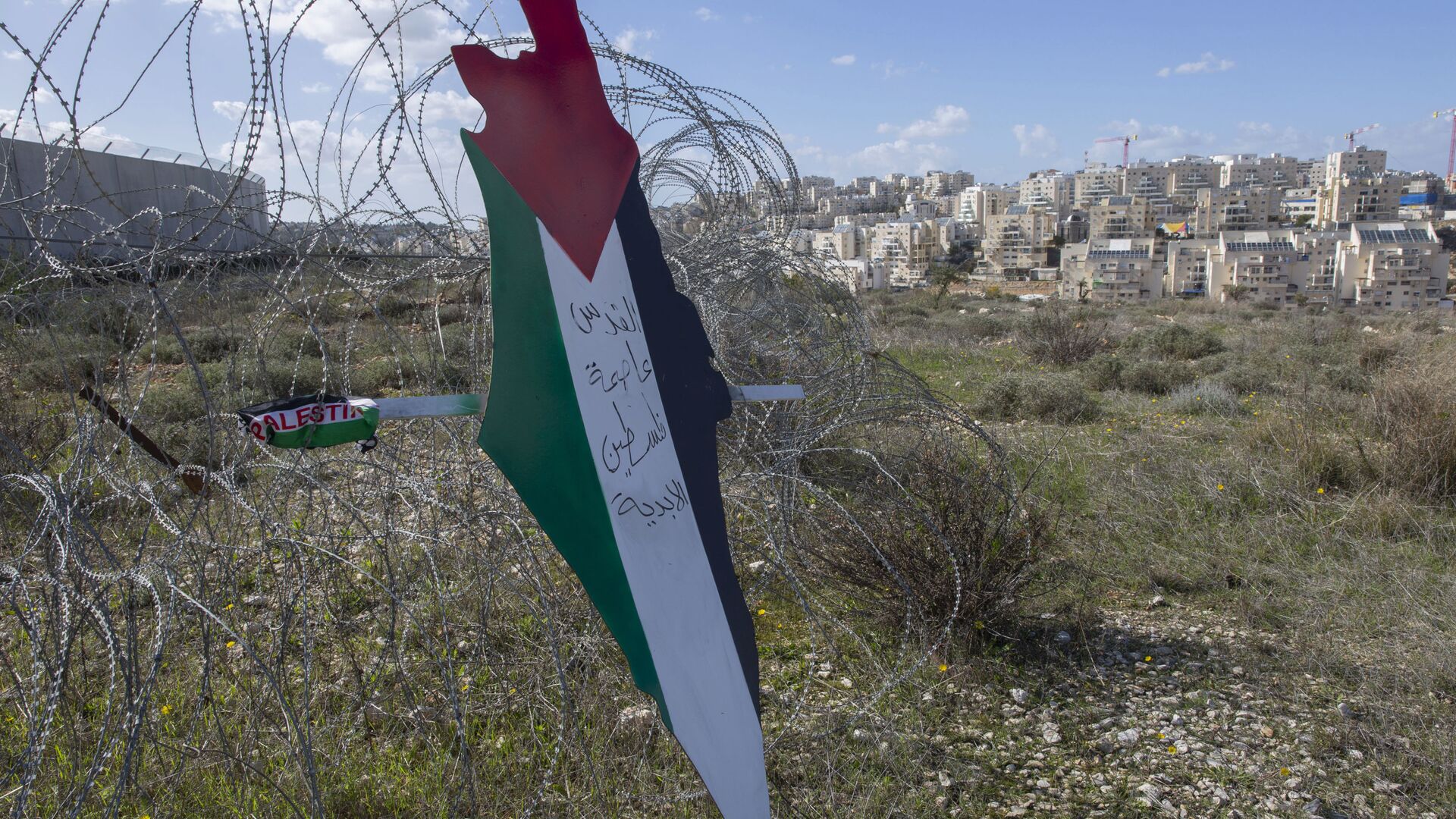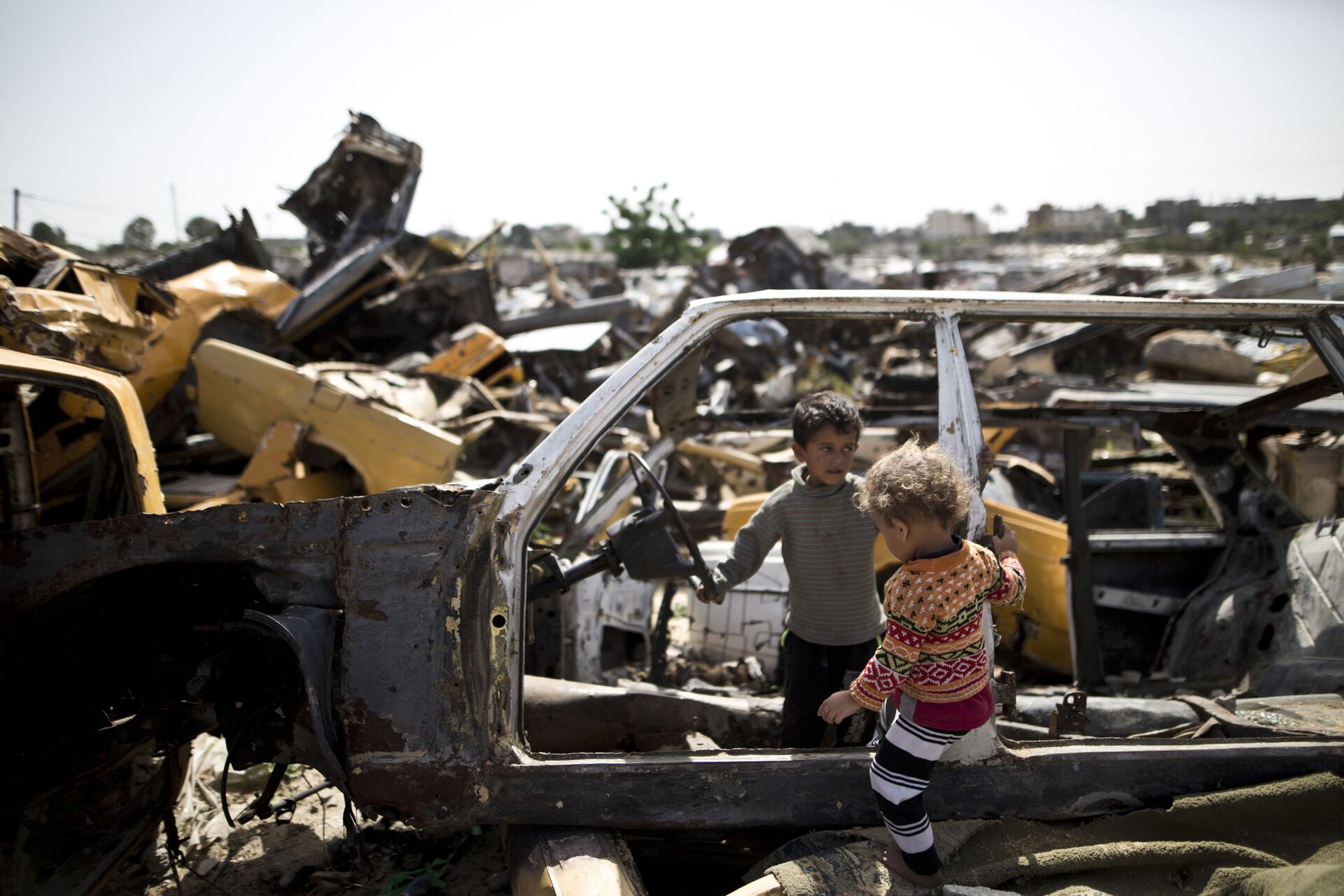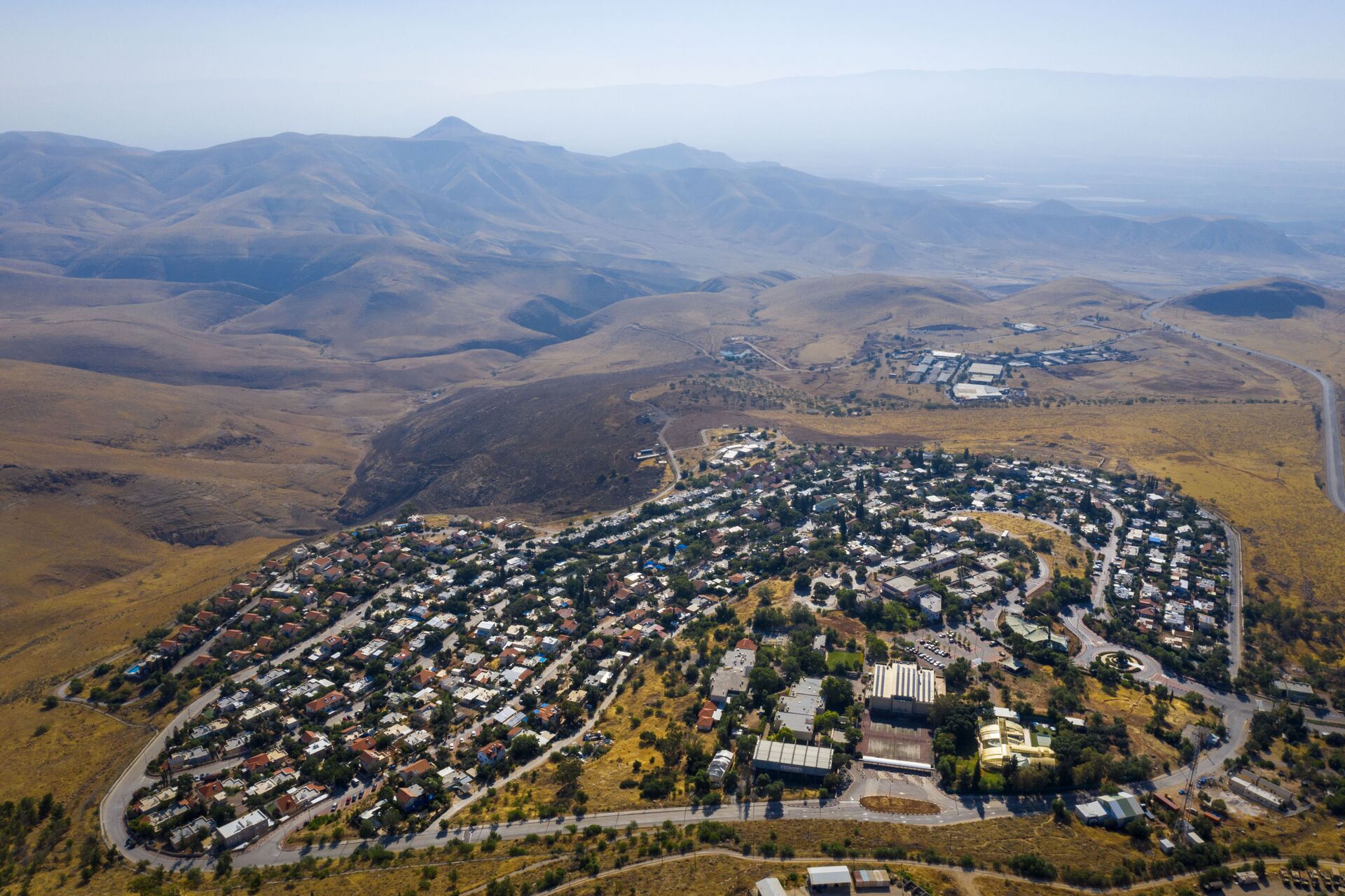https://sputnikglobe.com/20220624/why-is-israel-being-compared-to-apartheid-south-africa-1096633012.html
Why is Israel Being Compared to Apartheid South Africa?
Why is Israel Being Compared to Apartheid South Africa?
Sputnik International
When Israel captured the West Bank from Jordan in 1967, the intention was to exchange the land for peace, an ex-Israeli envoy to South Africa claimed. Over the... 24.06.2022, Sputnik International
2022-06-24T13:41+0000
2022-06-24T13:41+0000
2023-01-15T17:26+0000
middle east
apartheid
west bank
palestinians
israel
https://cdn1.img.sputnikglobe.com/img/107961/23/1079612396_0:160:3073:1888_1920x0_80_0_0_965c3c2b619deb1239bcd07f5f421007.jpg
The foreign affairs committee of the parliament of Spain's Catalonia adopted a draft resolution in June that accused Israel of committing apartheid in the West Bank, something that upset Israel's ambassador to Spain, Rodika Radian Gordon, who called the move an "obsession".Also in June, Polish political party Razem recognized Israel as an apartheid state, while Amnesty International, a global human rights organization, has repeatedly made that comparison.The number of states drawing parallels between Israel and apartheid-era South Africa is on the rise, believes Alon Liel, a former Israeli ambassador to South Africa. Israel’s shift to hawkish policies towards Palestinians is partly to blame for that trend, he explains:Israel has been in control of the West Bank since the 1967 Six Day War. Up until 2017, Israel has constructed more than 200 settlements in the West Bank. Those are home to 620,000 Jews, most of whom enjoy the protection of the army and have access to education, health care and social services in Israel. Palestinians, who constitute the majority in the West Bank and reside in the same strip of land, don’t have these rights.The comparison of Israel with South Africa is "incorrect", claims Prof. Meir Litvak, an Israeli expert on the Middle East, although he admits that there is no equality between Jews and Palestinians in the West Bank.In Israel, Jews and Arabs enjoy equality in their rights, stresses Prof. Efraim Inbar, the President of the Jerusalem Institute for Strategic Studies.Is Israel Careening Towards South Africa-Style Apartheid?The Nation State Law that was passed by authorities in 2018 has marked the tightening of Israel’s policies, Liel notes. The legislation has downgraded the status of Arabic from being Israel's second official language to one with a "special status".The shift in policies has backfired. In 2021, a poll found that a quarter of US Jews considered Israel an apartheid state. However, Israel will unlikely see its relations with its major allies spoiled over the Palestinian cause, thinks the former diplomat.Liel doesn’t believe Israel will change its ways anytime soon. The coalition headed by Prime Minister Naftali Bennett repeatedly said that it won't be dealing with the Palestinian issue. That same status quo will be maintained even if Yair Lapid, who is expected to enter the premiership seat next week, won't be tackling it either.Some governments have already started moving in that direction. Earlier this month, Norway started labeling products manufactured in Israeli settlements of the West Bank, a move that has also been adopted by a number of other European nations. The United States still reiterates its commitment to re-open its Consulate in East Jerusalem that was shut down by ex-President Donald Trump.
west bank
israel
Sputnik International
feedback@sputniknews.com
+74956456601
MIA „Rossiya Segodnya“
2022
News
en_EN
Sputnik International
feedback@sputniknews.com
+74956456601
MIA „Rossiya Segodnya“
Sputnik International
feedback@sputniknews.com
+74956456601
MIA „Rossiya Segodnya“
middle east, apartheid, west bank, palestinians, israel
middle east, apartheid, west bank, palestinians, israel
Why is Israel Being Compared to Apartheid South Africa?
13:41 GMT 24.06.2022 (Updated: 17:26 GMT 15.01.2023) When Israel captured the West Bank from Jordan in 1967, the intention was to exchange the land for peace, an ex-Israeli envoy to South Africa claimed. Over the years, however, Israel has quietly changed its policy, he went on to allege, building more settlements and increasing the Jewish presence.
The foreign affairs committee of the parliament of Spain's Catalonia adopted a draft resolution in June that
accused Israel of committing apartheid in the West Bank, something that upset Israel's ambassador to Spain, Rodika Radian Gordon, who called the move an "obsession".
The number of states drawing parallels between Israel and apartheid-era South Africa is on the rise, believes Alon Liel, a former Israeli ambassador to South Africa. Israel’s shift to hawkish policies towards Palestinians is partly to blame for that trend, he explains:
"I have been an Israeli official for three decades, and during that time Israel's intention was to exchange land for peace. It didn't have any desire to stay in the West Bank," says Liel. "Now the decision is different. Now, it seems, we want to stay there forever, so this causes comparisons [to South African Apartheid]," he stresses.
Israel has been in control of the West Bank since the 1967 Six Day War. Up until 2017, Israel has constructed more than 200 settlements in the West Bank. Those are home to 620,000 Jews, most of whom enjoy the protection of the army and have access to education, health care and social services in Israel. Palestinians, who constitute the majority in the West Bank and reside in the same strip of land, don’t have these rights.
The comparison of Israel with South Africa is "incorrect", claims Prof. Meir Litvak, an Israeli expert on the Middle East, although he admits that there is no equality between Jews and Palestinians in the West Bank.
"In South Africa, black and white people could not be on the same bus, or at the same table or hospital... [here] Jews and Arabs use the same roads, and often the same buses. Many West Bankers are admitted to Israeli hospitals, where they get equal treatment as Jews."
In Israel, Jews and Arabs enjoy equality in their rights, stresses Prof. Efraim Inbar, the President of the Jerusalem Institute for Strategic Studies.
"The Arab population has a right to vote, and has the right to be elected to parliament. There are indeed several Arab parties in the parliament. There are Arab judges [including in the Supreme Court]...Arabs [even] have a certain autonomy in Israel. They study in Arabic, and there is no reason to complain about their status".
Is Israel Careening Towards South Africa-Style Apartheid?
The Nation State Law that was passed by authorities in 2018 has marked the tightening of Israel’s policies, Liel notes. The legislation has downgraded the status of Arabic from being Israel's second official language to one with a "special status".
"What Israel did was that it created an apartheid law, where Jews were put above Arabs. Israel is no longer interested in a two-state solution. It is working towards establishing one state for all but in this state you can't have equality between the Jews and the Arabs," explains Liel.
The shift in policies has backfired. In 2021, a poll found that
a quarter of US Jews considered Israel an apartheid state. However, Israel will unlikely see its relations with its major allies spoiled over the Palestinian cause, thinks the former diplomat.
"Israel doesn't care that much about its image. What's important for us is to have good relations with governments,” Liel says. “World governments are not basing their relations with Israel solely on the conflict with the Palestinians. They maintain good relations with the country because it is strong politically, militarily and economically. Palestinians, on the other hand, cannot give the world what Israel has been offering."
Liel doesn’t believe Israel will change its ways anytime soon. The coalition headed by Prime Minister Naftali Bennett repeatedly said that it won't be dealing with the Palestinian issue. That same status quo will be maintained even if Yair Lapid, who is expected to enter the premiership seat next week, won't be tackling it either.
"For things to move we need fundamental changes. Those changes can either come from within Israeli politics, something that's unlikely, or they can come from the outside, when foreign governments start applying pressure on Israel."
Some governments have already started moving in that direction. Earlier this month,
Norway started labeling products manufactured in Israeli settlements of the West Bank, a move that has also been adopted by a number of other European nations. The United States still reiterates its commitment to re-open its Consulate in East Jerusalem that was shut down by ex-President Donald Trump.
"These might be small moves but they are an earthquake for Israel," says Liel. "Individual countries might not want to confront Israel but collectively they can change things, and as long as the occupation continues and the amount of settlers grows, this pressure promises to get even stronger."




